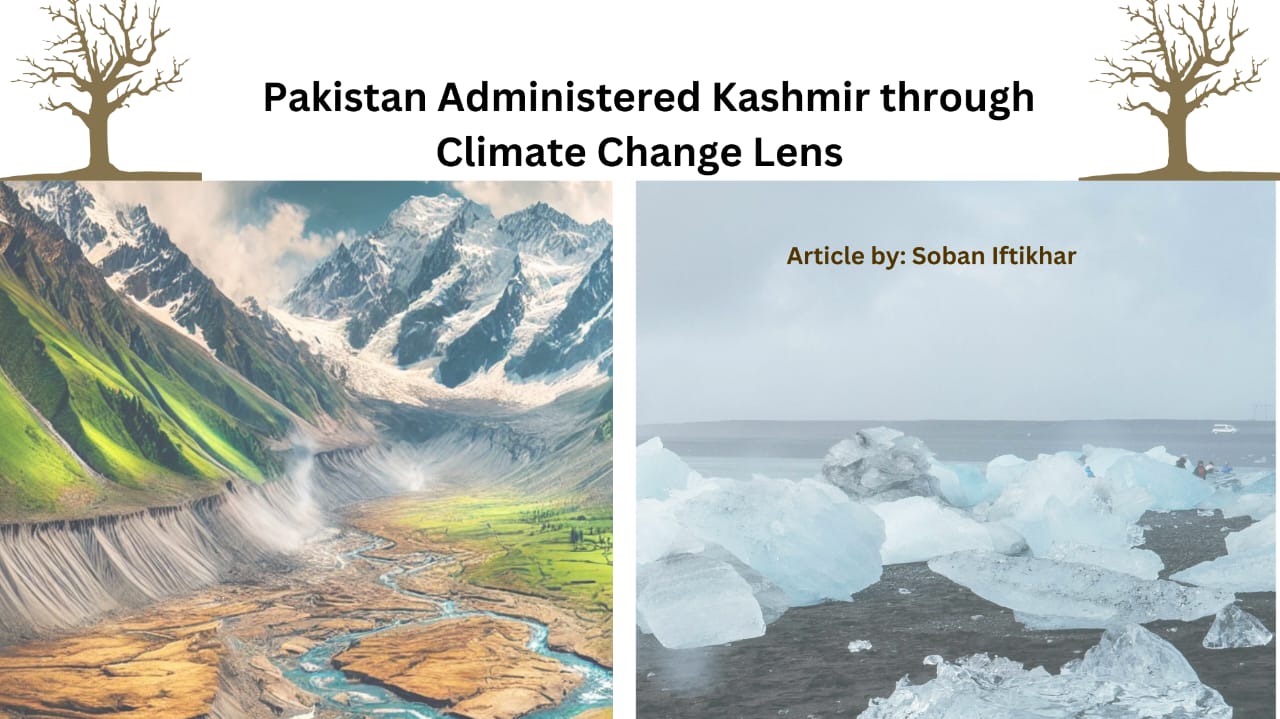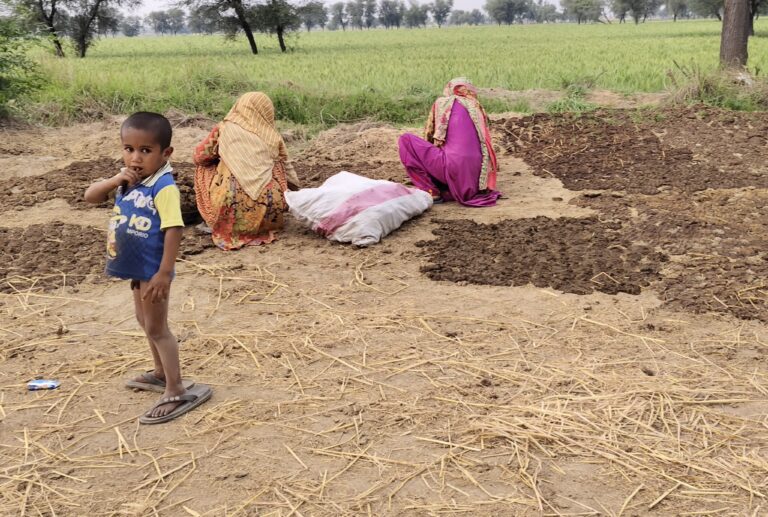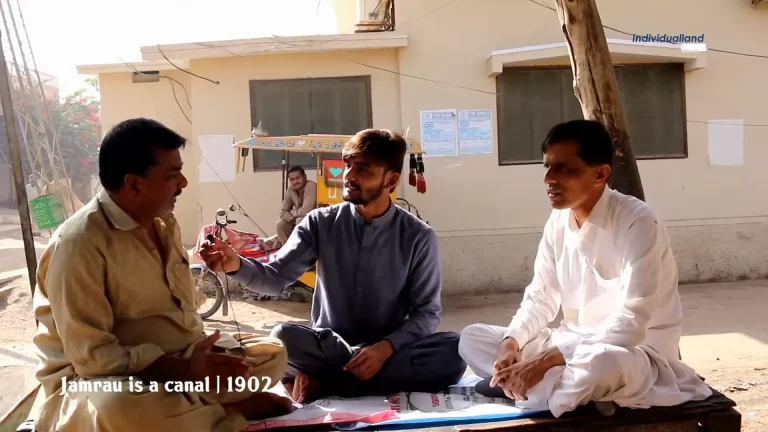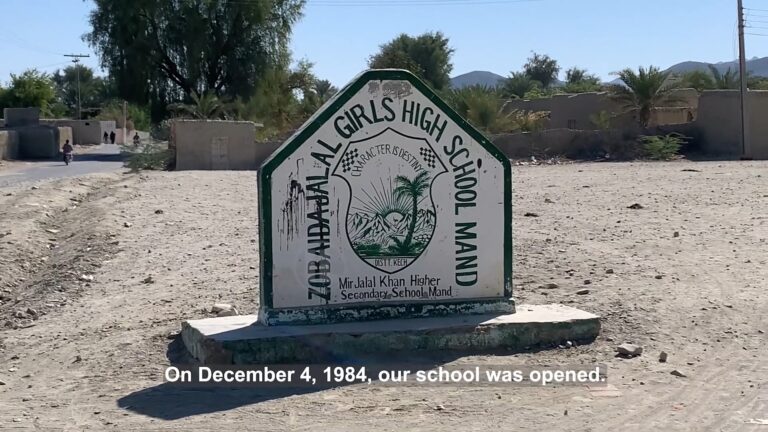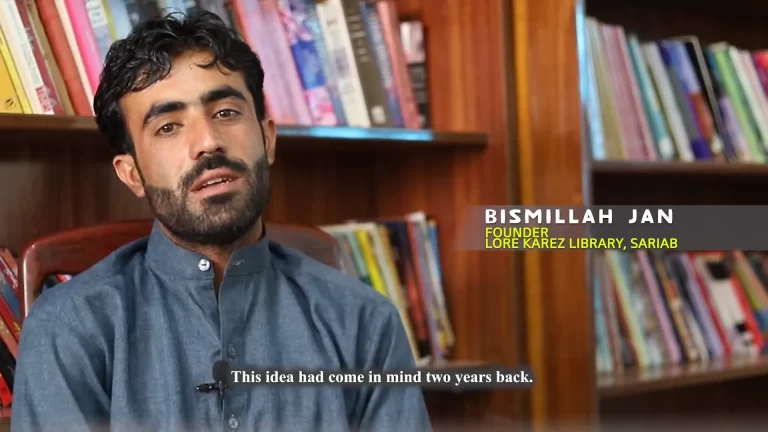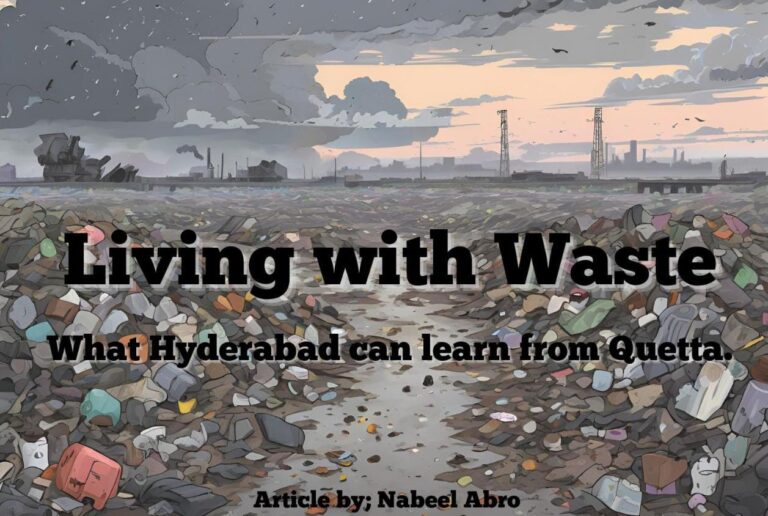Pakistan Administered Kashmir through Climate change Lens
It was a difficult decision, but as the eldest child in the family, I decided to leave my education and migrate from our village to the city. We hoped that this move would put an end to our struggles, but it turned out to be just the tip of the iceberg; many more challenges awaited us that we had to confront.’
These are the words of Rehana Aziz, the eldest daughter. With two younger sisters, two brothers and a mother to care for, the responsibility fell heavily on her shoulders after the passing of her father, Mr. Aziz Khan.
Rehana shared, ‘My father was the sole provider for our family of six. After his passing, my mother and I took on the responsibility of supporting the family. I had to leave my formal education and, together with my mother, we began working to sustain our household. We relied on agriculture to earn goods and other essentials for our daily needs.’
Just a year later, heavy rains and a cloudburst struck, killing Rehana’s family’s livestock and destroying their agricultural land. This forced her family to migrate to the city in search of a better life. However, with limited education, Rehana struggled to find a job to support her family. After much hardship, she managed to complete a computer diploma, which eventually helped her secure a job and start supporting her family.
Climate change is a global crisis, and although Pakistan contributes only 1% to global greenhouse gas emissions, it suffers some of the most severe consequences. According to the Global Climate Risk Index, Pakistan ranks as the 5th most vulnerable country to climate change in the world.
Pakistan-administered Jammu and Kashmir (PAJK) is a disputed territory grappling with severe socio economic challenges, compounded by poor infrastructure and governance. Among the regions in Pakistan, PAJK is the most affected by climate change. Unlike much of the country, it still experiences all four seasons, but extreme climate conditions have disrupted its natural weather patterns. Over the past 60 years, reports indicate a 4°C rise in temperature in this area. Summers have expanded by 45 days, while the other three seasons are shrinking.
These dramatic climate changes have led to a surge in natural disasters, with cloudbursts, floods, landslides, and other calamities affecting hundreds of people across the region in just the last five years. Both men and women in PAJK are enduring increasing hardships as they struggle to cope with the devastating impact of these environmental shifts.
Women in Pakistan-administered Jammu and Kashmir face deep-rooted oppression, which means their struggles are rarely, if ever, addressed. One such woman is 26-year-old Sania Tariq, a resident of a village facing severe water shortages due to rising temperatures.
Due to the water shortage, not only does the water for domestic use at home run out but there is also a shortage of water for both humans and animals to drink. Every day, Sania climbs a 10-kilometer mountain twice to fetch water, a journey that highlights the growing water crisis in the region as a result of climate change.
‘It’s not easy to walk 10 kilometers uphill and then back down with a 10-liter water pitcher on my head, but it’s our responsibility. The men have no concern about how we get the water—it’s solely our duty,’ Sania explained.
This grueling daily task is taking a toll on the health of women in the area. Many, like Sania, are suffering from joint diseases and other health issues due to the physical strain. Climate change is not only affecting the environment but also worsening the daily hardships for the women in this region.
In low-income families across Pakistan-administered Jammu and Kashmir, girls’ education is often sacrificed due to financial pressures. Zareefa Begum, a 42-year-old widow, faces this harsh reality. She supports her family of four with help from relatives and earnings from a walnut orchard. Zareefa has two sons and two daughters, but due to limited income, she made the difficult decision to end her daughters’ education.
“When my husband passed away, both sides of our family supported us financially, and we also earned from our walnut garden. However, due to extreme weather conditions, the walnut trees began to produce less fruit and started drying up. This cut off a significant source of income, and with limited financial resources, I had no choice but to stop my daughters’ schooling. It was impossible to afford education for all four children,” Zareefa explained.
Her story highlights the growing economic struggles in the region, where climate change is not only damaging livelihoods but also forcing families to make tough choices, often at the expense of girls’ futures.
Environmental expert Raja Asim Zaib highlights the growing challenges women face in Pakistan-administered Kashmir, particularly those exacerbated by climate change. According to him, women in the region are deeply affected by environmental shifts, as they already contend with limited decision-making authority, lack of basic rights, and scarce employment opportunities in both the public and private sectors. These socio-economic barriers, coupled with the region’s specific geographical challenges, are shaping a grim future for women and the generations to come.
“In Pakistan-administered Kashmir, women are the primary contributors to food production. However, due to current environmental changes, agricultural output has sharply declined, and water scarcity is worsening. This is increasing the workload for women, who are now facing even more difficulties,” said Asim Zaib. “As climate change intensifies, women are also grappling with various epidemics, made worse by the lack of basic healthcare services. These health issues not only affect their own well-being but also the nourishment and health of their children.”
His insights underscore the urgent need to address the intersection of gender, environmental challenges, and socio-economic inequality in the region.
In addition to the socioeconomic and environmental challenges, women’s health in Pakistan-administered Kashmir is severely impacted. Prolonged extreme weather conditions have disrupted many women’s menstrual cycles, and the region’s ongoing water crisis forces some pregnant women to walk miles for water, endangering both their own health and that of their babies. These issues are often considered taboo in the conservative society of this region, making it difficult to discuss them openly. Our attempts to speak with women directly affected by these challenges were unsuccessful due to the stigma surrounding the topic.
Dr. Fizza Bukhari, a gynecologist in District Bagh, shared her insights on the health crises women in the area face. “Many women experience menstrual cycle disturbances, particularly in the summer months. I’ve treated numerous pregnant patients who had to walk long distances while carrying heavy loads. Every second or third pregnant woman I see suffers from posture problems and spinal issues as a result of carrying weight during pregnancy,” Dr. Bukhari explained. Her observations reveal the hidden toll that environmental and societal pressures are taking on the women of this region.
In response to the growing climate crisis, the government of Pakistan-administered Kashmir established the National Climate Change Control Center in 2015. This department was created to design policy frameworks and strategies specifically for the region. According to Deputy Director of the Climate Change Center, Dr. Sardar Rafique, the government is actively taking measures to address climate change.
“The government set up this department under the guidance of Pakistan’s National Climate Change Center. We have developed climate change policies and strategies tailored to the region’s needs, and in 2018, we introduced and implemented the Climate Action Plan,” Dr. Rafique explained. These initiatives aim to mitigate the impacts of climate change on the region’s vulnerable communities and environment.Environmentalist Emphasizes Need for Strong Climate Change Policies and Effective Implementation
Environmental expert Mr. Raja Asim Zaib has stressed that while a robust policy framework is crucial in addressing climate change, its effective implementation on the ground is equally important. He emphasized that merely having policies in place will not result in significant changes in controlling the climate crisis.
Speaking about the current situation, Zaib pointed out that the government of Pakistan Administered Jammu and Kashmir should update its policies to align with the evolving trends and emerging threats posed by climate change. He identified three major factors contributing to the region’s climate challenges: deforestation, the use of fossil fuels, and unplanned construction. Zaib highlighted the necessity of a comprehensive policy framework, paired with clear implementation strategies that involve not only the government but also stakeholders and investors. He cited the example of deforestation, saying that without a strong legal framework and effective law enforcement, it would be impossible to curb illegal logging.
‘To control deforestation, we need a proper law enforcement mechanism in place. This is just one example of the need for a well-rounded approach that combines policy, law enforcement, and investment in order to effectively combat climate change,’ Zaib stated.
He concluded by urging both the government and private sector to collaborate in creating and executing a policy that can have a lasting impact on the region’s environmental future.
Disclaimer
We have made every effort to ensure the accuracy of the text and content on this website. Individualland and Friedrich Naumann Foundation do not accept responsibility for any unintentional omissions. We appreciate accurate information to enhance our work. The articles on this website are supported by Friedrich Naumann Foundation for Freedom Pakistan, but the views expressed here do not necessarily represent the views of the Friedrich Naumann Foundation for Freedom.

